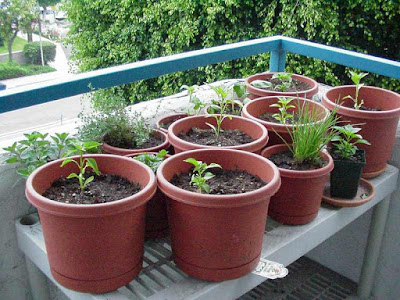 Since ancient times, human beings have sought the refuge of medicinal plants and herbs to treat their illnesses. Even a few hundred years ago when allopathic medicines and treatments were not that rampant, people used extracts from plants and herbs to produce medicines that helped them recover from common ailments like cough and cold to more serious ones like jaundice and malaria. Still now, ayurvedic treatment is one of the most sought after medicinal alternative to allopathic and many people place their trust on it, mainly because natural remedies don’t have side effects and are pretty inexpensive as well.
Since ancient times, human beings have sought the refuge of medicinal plants and herbs to treat their illnesses. Even a few hundred years ago when allopathic medicines and treatments were not that rampant, people used extracts from plants and herbs to produce medicines that helped them recover from common ailments like cough and cold to more serious ones like jaundice and malaria. Still now, ayurvedic treatment is one of the most sought after medicinal alternative to allopathic and many people place their trust on it, mainly because natural remedies don’t have side effects and are pretty inexpensive as well.While herbal medicines are readily available online or in markets, you can make your job easier by growing the herbs at home- on your windowsill, balcony, porch, backyard or even the roof. This way you can enjoy their benefits whenever you need them and you don’t even have to spend money to buy them.
Here we have listed five extremely beneficial medicinal herbs that you can grow in your herb garden. They don’t take up a lot of space, so you can plant them in little pots and watch them grow.
1. Peppermint- Mint needs a beautiful sunny weather to thrive. Nevertheless it can grow in shaded areas too. It should be kept in a sunken pot on its own because it grows profusely and can suffocate the other plants. Remember mint loves water! So don’t forget to water it everyday.
Medicinal properties- Rich in Vitamin A and C, antioxidants, manganese, iron.
Benefits- Soothes tummy troubles, relieves headaches, reduces inflammation. Can be used in food or infused in tea.
2. Aloe Vera- Aloe Vera is a wonder plant with multiple uses which has gained popularity in the beauty industry as a healing and moisturising agent. Aloe Vera grows under normal conditions in bright sunny weather. The gel that is extracted from its leaves can be applied on the skin externally and its juice can be consumed orally.
Medicinal properties- It contains minerals, Vitamins, amino acids and active enzymes.
2. Aloe Vera- Aloe Vera is a wonder plant with multiple uses which has gained popularity in the beauty industry as a healing and moisturising agent. Aloe Vera grows under normal conditions in bright sunny weather. The gel that is extracted from its leaves can be applied on the skin externally and its juice can be consumed orally.
Medicinal properties- It contains minerals, Vitamins, amino acids and active enzymes.
Benefits- Acts as an anti-inflammatory on the skin, useful for rashes, acne and eczema. When consumed it aids digestion, helps in weight loss, constipation and improves circulation.
3. Chamomile- Chamomile flower is known around the world for its usefulness in herbal teas but it has many other benefits too. This perennial plant requires occasional watering and needs to be placed close to the sun.
Medicinal properties- Rich in minerals, copper, zinc, iron, salicylic acid and Vitamins C and B1.
3. Chamomile- Chamomile flower is known around the world for its usefulness in herbal teas but it has many other benefits too. This perennial plant requires occasional watering and needs to be placed close to the sun.
Medicinal properties- Rich in minerals, copper, zinc, iron, salicylic acid and Vitamins C and B1.
Benefits- When added to tea, chamomile facilitates sleep, relaxes the mind and muscles and reduces stress. It is an anti-inflammatory that can be used on the skin to cure rashes and infections.
4. Lemon balm- This herb has a distinct minty citrus smell and can grow at an alarming rate, so the stems need to be trimmed regularly.
Medicinal properties- It is a natural antioxidant rich in flavonoids, rosmarinic and phenolic compounds.
4. Lemon balm- This herb has a distinct minty citrus smell and can grow at an alarming rate, so the stems need to be trimmed regularly.
Medicinal properties- It is a natural antioxidant rich in flavonoids, rosmarinic and phenolic compounds.
Benefits- When rubbed against the skin, the leaves heal insect bites, rashes, sores and herpes. The juice is beneficial for headaches, insomnia, fever, colds and depression.
5. Basil- This medicinal herb is used frequently in cooking. It cannot withstand cold so do not keep it outside in cold temperatures. Also, it requires regular watering and plenty of sun.
Medicinal properties- Contains antioxidants, vitamins, calcium and iron.
5. Basil- This medicinal herb is used frequently in cooking. It cannot withstand cold so do not keep it outside in cold temperatures. Also, it requires regular watering and plenty of sun.
Medicinal properties- Contains antioxidants, vitamins, calcium and iron.
Benefits- Basil is used to cure gas, lack of appetite, flatulence, cuts, headaches and kidney stones.
However before planting any herb, make sure the weather conditions are favourable otherwise the plant will not thrive like you want it to.



















